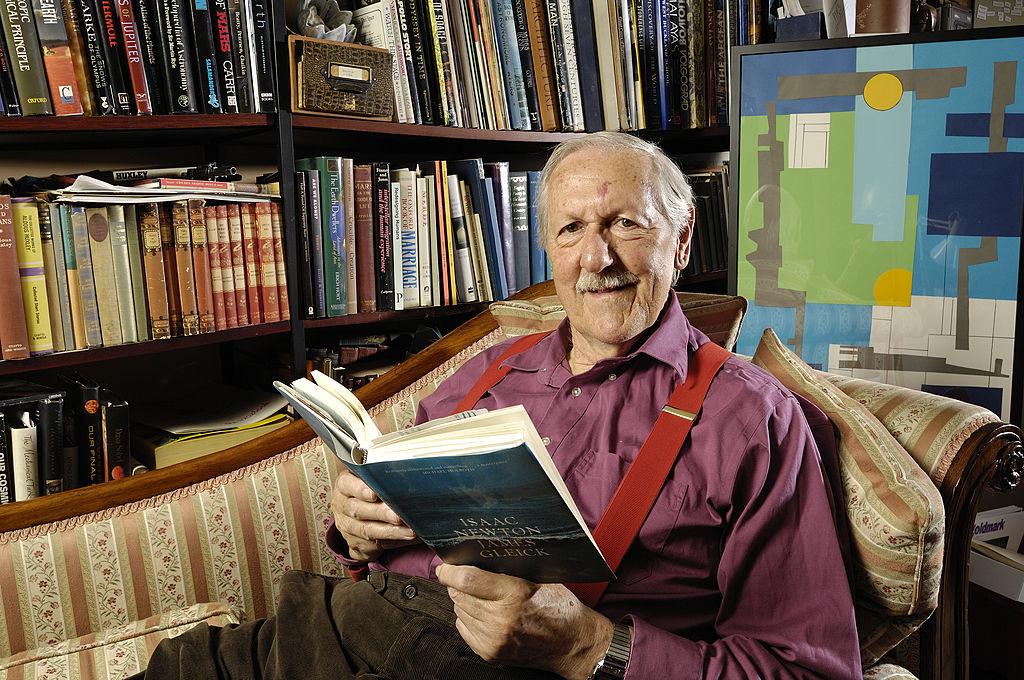Brian Aldiss, science fiction writer
The sci-fi author wrote so elegantly that he was honoured for services to literature

Your support helps us to tell the story
From reproductive rights to climate change to Big Tech, The Independent is on the ground when the story is developing. Whether it's investigating the financials of Elon Musk's pro-Trump PAC or producing our latest documentary, 'The A Word', which shines a light on the American women fighting for reproductive rights, we know how important it is to parse out the facts from the messaging.
At such a critical moment in US history, we need reporters on the ground. Your donation allows us to keep sending journalists to speak to both sides of the story.
The Independent is trusted by Americans across the entire political spectrum. And unlike many other quality news outlets, we choose not to lock Americans out of our reporting and analysis with paywalls. We believe quality journalism should be available to everyone, paid for by those who can afford it.
Your support makes all the difference.Brian Aldiss was a master of the science fiction genre, an author who wrote some 20 novels and more than 300 short stories during his lifetime. Fellow sci-fi writer Harry Harrison said of his work: “You can read all his books for their human content, even though science fiction is traditionally driven by plot and not by character. But his have all the strengths of a good novel.”
Aldiss was born in Dereham, Norfolk, in 1925 and began writing as an infant. “I started to write when I was only three. I’d write little stories and my mother would bind them and put them on the shelf”, he told this newspaper in a 2013 interview.
Following military service in Burma and India during the World War II, he worked at a bookshop in Oxford. He began his professional writing career as a columnist for The Bookseller and published his first novel, The Brightfount Diaries, through Faber in 1955.
His magnum opus is the epic Helliconia trilogy (Spring, Summer, Winter), set a thousand years into the future and chronicling an earth-like planet and its development, through seasons lasting for centuries. Published in the early Eighties, Aldiss envisages Helliconia as a living organism, in the spirit of James Lovelock’s Gaia, and suggests therefore that “...my novel would fulfil all the obligations of true science fiction by encompassing not only scientific knowledge still under debate but speculation based on that knowledge.”
In 1983 the director Stanley Kubrick acquired the rights to his short story Supertoys Last All Summer Long (1969) and started developing a script. Following Kubrick’s death in 1999 the project was adopted by Steven Spielberg and released in 2001 as AI, featuring the robotic boy, David, who has been programmed to love. Aldiss later said that the character was inspired by his own difficult relationship with his mother as he grew up.
In more recent novels such as Harm (2007) and The Finches of Mars (2013) – his last book – he tackled contemporary issues including the “war on terror” and how mankind might survive by colonising another planet. In the latter work, the planned new society turns to dystopia when it emerges that the women on the Red Planet only ever give birth to stillborn children.
Aldiss was vice president of the HG Wells Society, reflecting the Time Machine author’s influence on his writing. He was also a founding member of the Groucho Club in London and had been a drinking partner of Kingsley Amis. He received the Hugo Award for Science Fiction in 1962 and the Nebula Award three years later. In 2005 he was awarded an OBE for services to literature in the Birthday Honours List.
Aldiss died at home in Oxford one day after his 92nd birthday. His son Tim said “Dad wrote science fiction at the time of the moon landings and during the space race, when everyone was looking up at the stars. He said there were two types of writer: one that makes you think and one that makes you wonder. He put himself in the latter. His writing encouraged readers to explore their own minds.”
Brian Aldiss OBE, author, born 18 August 1925, died 19 August 2017
Join our commenting forum
Join thought-provoking conversations, follow other Independent readers and see their replies
Comments